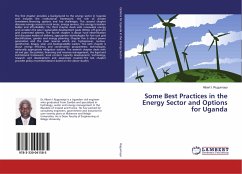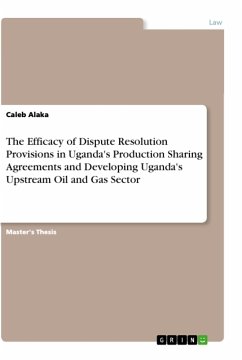The first chapter provides a background to the energy sector in Uganda and includes the institutional framework; the role of private investment,financing options and key challenges. The second chapter discusses energy access in rural areas, energy services, the energy transition ladder and affordability. The third chapter deals with renewable energy and considers the poor; sustainable development goals (SDGs), off grid and grid connected systems. The fourth chapter is about rural electrification and discusses modes of delivery; appropriate technologies for low cost grid electrification, gender and energy planning. Chapter five is about power generation and the main sources which are; hydropower, nuclear, geothermal, biogas, solar and biodegradable wastes. The sixth chapter is about energy efficiency and conservation programmes; technologies; nationally appropriate mitigation actions. The seventh chapter deals with oil and gas; the policies; financing and revenue management; the legal and institutional framework; local content capacity development; technology; research and development and awareness creation.The last chapter provides policy recommendations based on the above studies.








